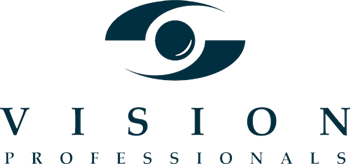Neuro-Optometry Near You in Ohio
Have You Had a Concussion or Brain Injury?
People who’ve sustained a concussion or brain injury often have to deal with vision problems that make navigating daily life challenging. A neuro-optometrist can help patients with vision problems caused by concussions and brain injuries recover their visual function and quality of life.
Traumatic Brain Injury (TBI)
A TBI is caused by accidents or falls and can impact how you think, feel and see. In fact, about 90% of patients with TBI will experience vision problems. This is because your brain plays a key role in vision, and TBIs disrupt the connection between the eyes and the brain.
![Neuro Optometric Rehabilitation TBI in [tokens name=City],[tokens name=State].](https://da4e1j5r7gw87.cloudfront.net/wp-content/uploads/sites/4580/2023/09/TBI.jpg)
Mild Brain Injury (MTBI) - Concussions
Even mild brian injuries like concussions can have a profound effect on vision. Children and teenages are more likely to experience concussions than other demographics, with over 60% experiencing visual disturbances as a result.
Even elderly people are prone to concussions, and it’s important to seek immediate attention from an eye doctor if you’ve experienced a concussion, whiplash, or a blow to the head.
Stroke
When the delicate flow of cerebral blood supply is stopped by a stroke, also known as a cerebrovascular accident or CVA, vision often takes a hit. The aftermath of a stroke can manifest in many visual changes, including sensory, motor, and perceptual shifts.
If you’ve had a stroke, book an appointment with us so our neuro-optometrist can help you regain your visual function.
Neuro-Optometric Rehabilitation Therapy: Where Neurology Meets Optometry
Neuro-optometric rehabilitation therapy, or neuro-optometry, is a tailored program designed for patients dealing with visual deficits resulting from strokes, traumatic brain injuries, concussions, or neurological conditions. This approach uses neuroplasticity (the brain’s ability to adapt by forming new neural pathways) to help patients regain or develop essential visual skills.
Undiagnosed vision problems caused by brain injuries or neurological conditions can lead to:
- Double or blurry vision
- Eye-teaming and tracking difficulties (trouble with moving the eyes together)
- Visual field loss
- Light sensitivity (photophobia)
- Focusing challenges
Neuro-optometric rehabilitation therapy targets the root causes of these symptoms. Schedule a functional vision exam to find out how our neuro-optometrist can help you overcome visual issues caused by neurological conditions, diseases, or brain trauma.
Neuro Optometry FAQs
Neuro-optometric rehabilitation delves into your eye-teaming, focusing, and visual tracking abilities, allowing our neuro-optometrist to craft a personalized treatment plan to guide you towards visual recovery and independence.
The Intersection of Neurology and Optometry
Neuro-optometric rehabilitation therapy is a customized treatment program for patients whose stroke, traumatic brain injury, concussion, neurological condition or disease has resulted in visual deficits. It applies the latest methods and treatments of neuro-plasticity and vision function to help patients develop or regain the essential visual skills necessary for learning and optimal daily function.
An undiagnosed vision condition, or one resulting from a traumatic brain injury or neurological disease, can result in the following problems:
- Double-vision
- Blurred vision
- Eye-teaming and eye-tracking problems
- Visual field loss
- Extreme sensitivity to light (photophobia)
- Eye focusing problems
As part of an interdisciplinary approach, neuro-optometric rehabilitation therapy targets the underlying cause of the symptoms listed above.
If you or a loved one is suffering from neurological disease, trauma or conditions, visit Dr. Kimberly Rock for a comprehensive eye exam and neuro-optometric solutions.
Learn More About Neuro Optometry | FAQ
Neuro-Optometric Rehabilitation Therapy is very effective in resolving a range of vision problems resulting from brain injuries and neurological disorders.
The highly trained New Albany-based Dr. Kimberly Rock will diagnose issues with eye-teaming, focusing, and visual tracking, and prescribe the most effective neuro-optometric rehabilitation therapy program so that you can live your best life!
![Neuro Optometric Rehabilitation Man evaluation 1 600x600 in [tokens name=City],[tokens name=State].](https://da4e1j5r7gw87.cloudfront.net/wp-content/uploads/sites/4580/2024/12/Man-evaluation-1-600x600.jpg)
